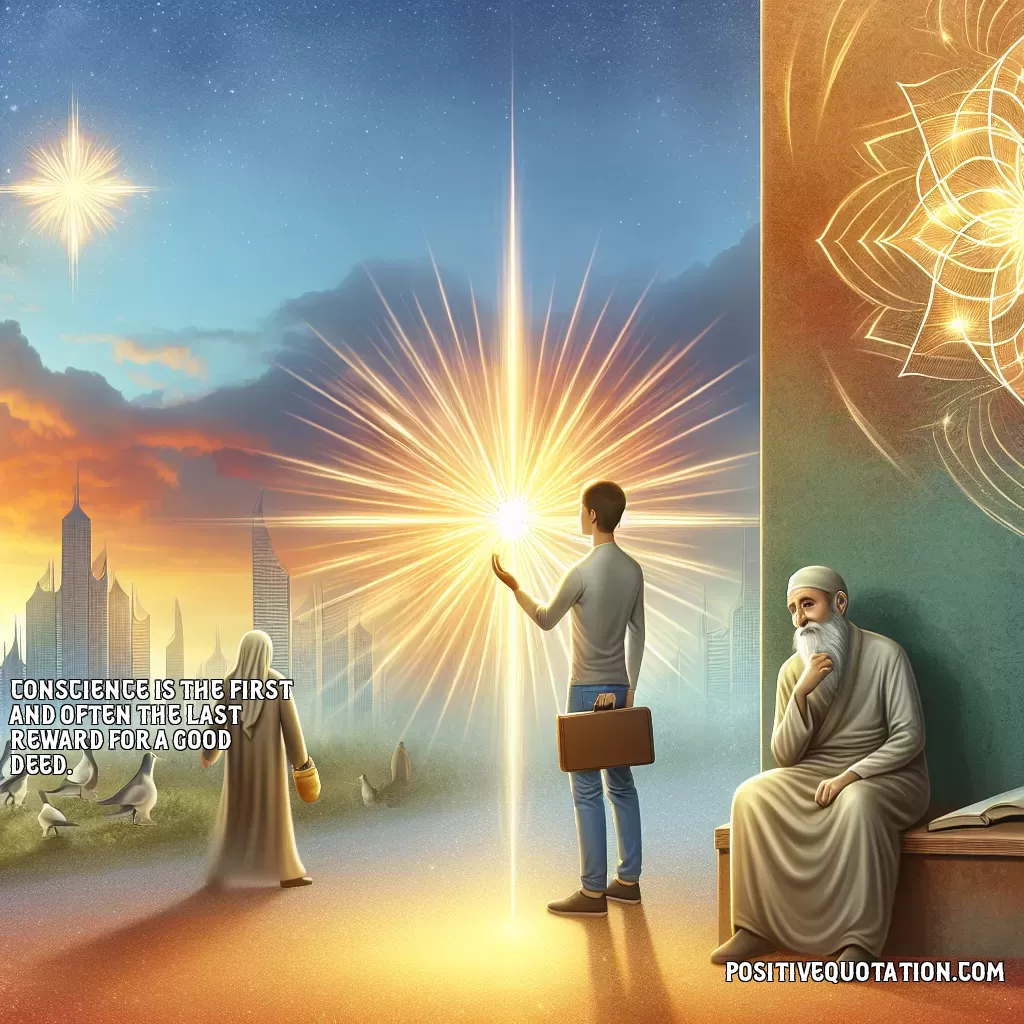
Conscience is the first and often the last reward for a good deed.
The quote "Conscience is the first and often the last reward for a good deed" suggests that the primary reward for performing a good action is the satisfaction and peace of mind that comes from acting in accordance with one's moral beliefs. It emphasizes that our conscience—our internal sense of right and wrong—provides the initial gratification when we do something virtuous. Furthermore, it implies that this sense of moral fulfillment can also be the lasting reward, as the positive feelings associated with doing the right thing linger long after the act itself. In essence, this quote highlights the intrinsic value of good deeds, suggesting that the true reward lies in the personal sense of integrity and righteousness that accompanies them, rather than in external recognition or material gains.
Quote By: Harriet Beecher Stowe